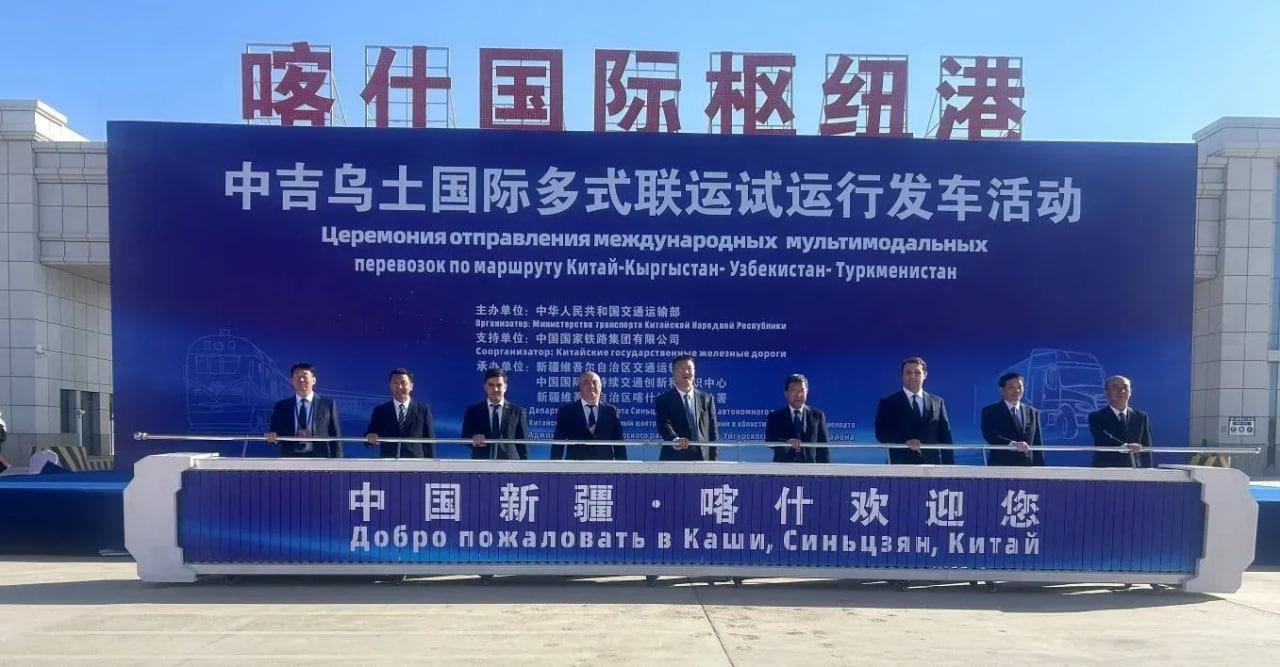RUSSIA PURSUES ENERGY PARTNERSHIP WITH CHINA
RUSSIA PURSUES ENERGY PARTNERSHIP WITH CHINA
The Kremlin has dispatched Deputy Prime Minister Igor Sechin to China in order to boost bilateral energy ties. Sechin reportedly reassured Chinese Premier Wen Jiabao that Russia was ready to work with China to fulfill bilateral agreements, and develop energy cooperation. Sechin also delivered a letter from Putin to Wen.
On July 26, Sechin and China’s Vice Premier Wang Qishan launched what they described as a “negotiation mechanism.” Energy cooperation plays an important role in the strategic cooperation between China and Russia, Wang said. “The launch of such a mechanism indicates that the China-Russia energy cooperation enters into a new phase,” Wen Jiabao reportedly commented. He also encouraged more progress in crude oil trade, joint development of new deposits, construction of oil and gas pipelines, as well as refining and chemical production facilities (Interfax, RIA-Novosti, Xinhua, July 26-27).
While official pronouncements inevitably remained optimistic, Sechin’s mission to China produced very limited results. Following talks in Beijing, Sechin only said that both sides agreed to continue discussion of major bilateral projects, which would be reviewed in October 2008. Also, in July 2007, a spokesman of China’s CNPC announced that both sides reiterated shared interest in a spur from the Eastern Siberia-Pacific oil pipeline (ESPO) to China, as well as the China-bound Altai gas pipeline project (Interfax, July 26).
In the wake of his trip to Beijing, Sechin told a cabinet meeting that talks in Moscow between Putin and Wen would be held in late October this year, while an energy dialogue meeting is also due in Moscow in October (Interfax, July 28).
In May 2008, President Dmitry Medvedev announced ahead of his trip to Beijing that Russia and China agreed to build the ESPO pipeline spur to China. Medvedev also said that negotiations between Rosneft and CNPC were nearing completion. Earlier this year, Russian officials indicated that negotiations on the ESPO spur to China were stalled because Rosneft and CNPC remained divided over oil export volumes and prices.
Russian and Chinese companies tentatively agreed on the ESPO spur to China when then President Vladimir Putin visited Beijing in March 2006. Two years ago, Putin promised to export Russian gas to China from both Eastern and Western Siberia, up to 30-40 billion cubic meters of gas a year from each region. He also pledged to build a new $10 billion pipeline, tentatively called Altai, due to be commissioned in 2011. However, Russia and China have struggled to agree on oil and gas prices, causing delays of the ESPO spur and the Altai gas pipeline projects.
In the wake of Sechin’s trip to China, Russian executives made some moves toward expediting the ESPO. On July 28, Transneft announced an amicable settlement with its main ESPO contractor, Krasnodarstroitransgaz. In April and May 2008, Transneft sued Krasnodarstroitransgaz, claiming 32 billion rubles ($1.37 billion) in damages over construction delays, cited as a major reason behind slow progress of the ESPO project (Interfax, July 28). On July 29, Russia’s oil pipeline monopoly Transneft announced that the ESPO second stage’s price tag could reach 260 billion rubles ($11 billion) (Interfax, July 29).
In the meantime, Russian oil exports to China were decreasing, apparently because the China National Petroleum Corporation (CNPC) remains reluctant to agree to an increased import price of crude oil supplied by Rosneft to China. From January to July 2008, Russian oil exports to China amounted to 6.27 millions tons, down 19.5 percent in terms of volume. By comparison, in 2007, oil deliveries to China, mainly by the state-run oil company Rosneft, totaled 14.5 million tons, down 9 percent (Interfax, July 25).
Nonetheless, bilateral commerce has been increasing. From January to July 2008, Russia’s trade with China reached $26.9 billion or up 31.1 percent year-on-year, according to the Russian foreign trade estimates. Russia’s exports amounted to $12.6 billion, while China’s exports reached $14.3 billion (Interfax, July 25).
Last year, China recorded a $8.76 billion trade surplus with Russia for the first time since the Soviet collapse in 1991. Russian exports amounted to 11 percent of China’s total imports in 2006, 9 percent in 2007 and 6.9 percent from January to July 2008.
Although Russia is running a sizable deficit in its trade with China, few Russians were concerned. On July 31, Russia’s Public Opinion Foundation (FOM) released an opinion poll suggesting that 54 percent of Russians viewed China as a friendly nation. Meanwhile, only 2 percent expressed wariness of China’s economic expansion in Russia (Interfax, July 31)
Meanwhile, Russian officials were again forced to deny that the recent border deal did not harm Russian interests (see EDM, July 30). Vladimir Malyshev, head of the Russian Foreign Ministry First Asian department, dismissed media speculation that the agreement dealt Russia economic damage worth $3 billion (Interfax, July 31).
On July 21, Russia and China signed an agreement that finally settled the demarcation of their 4,300-kilometer (2,672-mile) border, which involves the handover by Russia of two river islands. Under the agreement, the border will divide formerly disputed areas of some 375 square kilometers between Russia and China. Part of the Bolshoi Ussuriisky island and the entirety of the Tarabarov island will be handed over to China.


